The EU Commissioner for migration, Magnus Brunner and officials from Greece, Italy and Malta visited both east and west Libya on Tuesday (July 8), in a bid to encourage the country to strengthen its migration controls and reduce the number of sea crossings towards Europe. The visit was branded "morally bankrupt" by human rights organizations such as Amnesty International.
The European Union's Migration Commissioner Magnus Brunner arrived in Libya on Tuesday (July 8) for a series of high-level talks with Libyan officials in the east and west of the country. According to Brunner's EU calender, he was due to meet Abdulhamid Dbeibah, Prime Minister of Libya, Eltaher Elbaour, Acting Minister of Foreign Affairs of Libya, and Emad Trabelsi, Minister of Interior Designate of Libya in the UN-recognized western part of the country, as well as Field Marshal Khalifa Haftar, General Commander of the Libyan Arab Armed Forces, who holds sway over the eastern part of the country. The EU officials, however, were denied entry into eastern Libya, an EU official updated on Wednesday.
Brunner was accompanied by officials from Italy, Greece, and Malta – all were reportedly denied entry. The delegation was reportedly seeking to persuade the Libyan authorities to exercise more controls over migration, as the numbers of those arriving in both Greece and Italy from Libya are increasing once again.
Just ahead of the visit, the Greek authorities rescued hundreds of migrants in separate incidents off the coasts of the islands of Gavdos and Crete in the southern Mediterranean. Those arriving had set off from Libya days earlier.
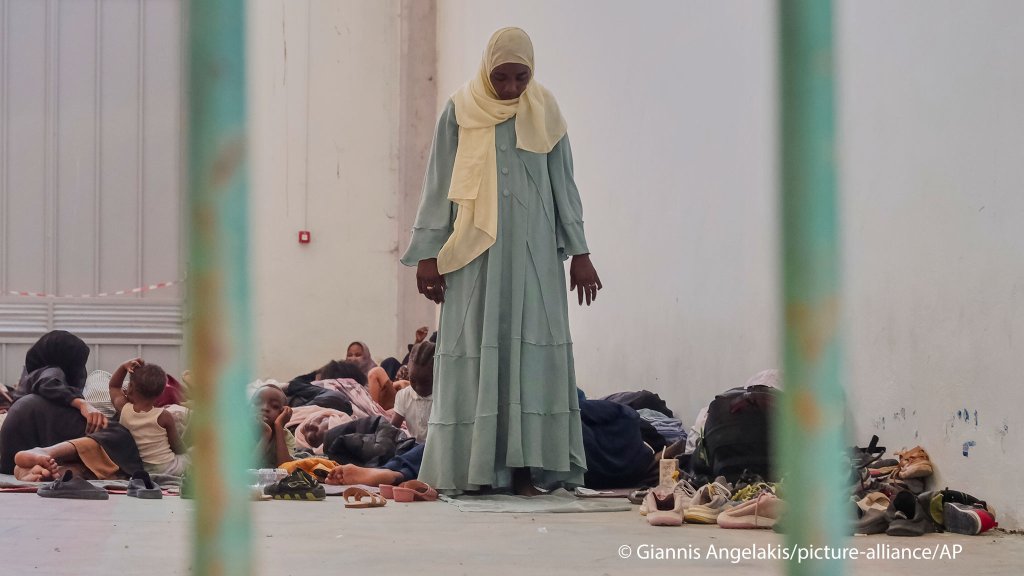
Libyan Prime Minister promises 'huge campaign' against migration
Late on Tuesday afternoon, the Libyan Prime Minister, Abdelhamid Dbeibah announced his intention to roll out "a huge national campaign...with the support of several friendly countries to combat the trafficking of human beings," reported the AFP.
Debeibah added that "the migration issue cannot be resolved without the support of friendly countries...the problem exceeds our country's capabilities."
Libya's Interior Minister Imad Trabelsi, said that Libya was already hosting between three and four million migrants. He claimed most of them had "entered the country illegally...and were being encouraged to leave."
Some of those migrants, promised Trabelsi, would be offered a regularized status if they could offer skills that Libyan employers needed, others though, would face deportation.
Eastern Libya denies EU delegation visit
The delegation had arrived at Benghazi airport in the east hoping to attend a meeting with the parallel government of Osama Hamad – allied to Haftar – shortly after meeting the internationally recognized government in the west.
According to the EU spokesperson, Brunner and his colleagues were denied entrance due a "protocol issue."
"What happened in Benghazi was there was a protocol issue. This is why it was not possible to carry out the planned meetings," EU spokesperson Markus Lammert told the EU’s daily press briefing.
"The EU will maintain open channels of communication and we will continue working in a Team Europe approach with all actors involved."
Amnesty brands visit 'morally bankrupt'
Ahead of the visit, the human rights organization Amnesty International, slammed the EU's cooperation with Libyan authorities on migration, condemning it as "morally bankrupt."
"The EU’s morally bankrupt migration cooperation with Libyan authorities amounts to complicity in horrific human rights violations. Attempts to stop departures at any cost show a complete disregard for the lives and dignity of migrants and refugees," Eve Geddie, the Director of Amnesty International’s European Institutions Office, said in a statement released on Tuesday (July 8).
The warning comes amid an increase in migrant interceptions, deaths off Libya’s coast, and arrivals on the Greek islands of Crete and Gavdos.
The rights group said that EU funds are enabling the return of thousands of people to conditions amounting to crimes against humanity, including torture, rape, arbitrary detention, and forced labor.
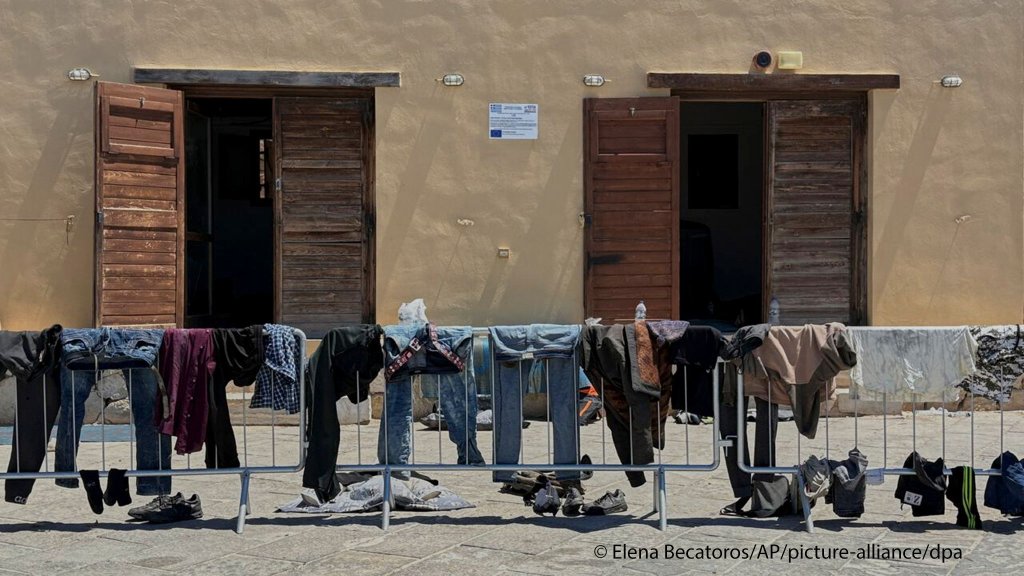
"Instead of addressing the catastrophic human cost of its migration deals in Libya and beyond, the EU and its member states are doubling down – trapping more and more people in abhorrent cycles of abuse," Geddie said.
EU push for Libyan migrant crackdown
The EU visit to Tripoli comes as both rival Libyan governments continue clampdowns on migration. Over the past three days, Libyan authorities intercepted 113 migrants in multiple operations off the coast and recovered the bodies of three "illegal migrants of African nationalities" washed up near Misrata, the Ministry of Interior said in a statement.
On Monday, Libyan security forces intercepted 54 migrants aboard a vessel near Garabulli, approximately 50 kilometers (31 miles) east of Tripoli, according to the Interior Ministry. The group was brought back to Tripoli's port and handed over to authorities.
A day earlier, as part of intensified summer maritime patrols, 20 migrants of various nationalities were rescued off the coast of Zawiya, 45 kilometers west of Tripoli. On Saturday, another 39 migrants were intercepted off Tripoli’s eastern shoreline, though officials did not specify their origin or intended route.
Migrants intercepted at sea are regularly returned to detention centers in Libya, where they face a high risk of human rights violations.
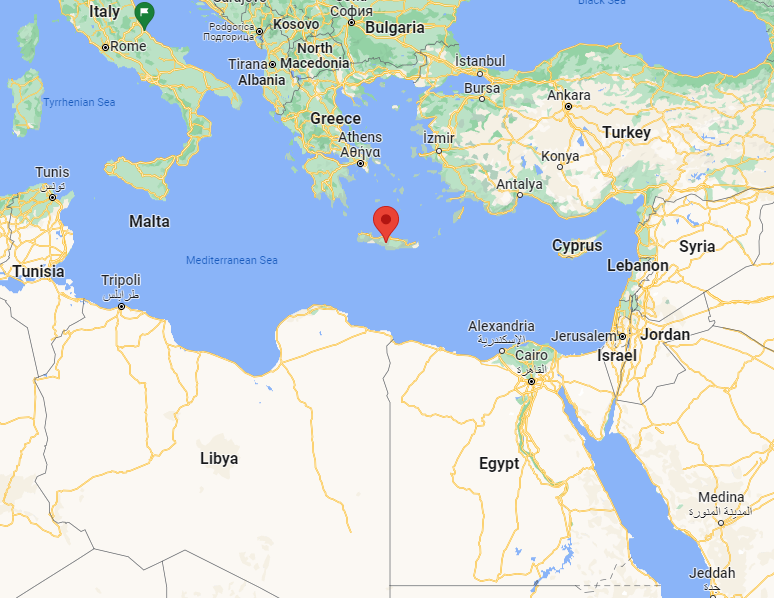
Greek islands see migrant sea arrivals increase from Libya
Meanwhile, across the Mediterranean, Greek authorities reported an increase in migrant arrivals from Libya. More than 1,200 people have been put in camps on Crete after arriving there or on the nearby islet of Gavdos since Saturday.
Makeshift shelters are overflowing, and local officials are calling for urgent government help, according to Greek authorities. Greece’s coast guard has intercepted multiple overcrowded, unseaworthy boats, many carrying people who reported being beaten and extorted by smugglers in Libya.
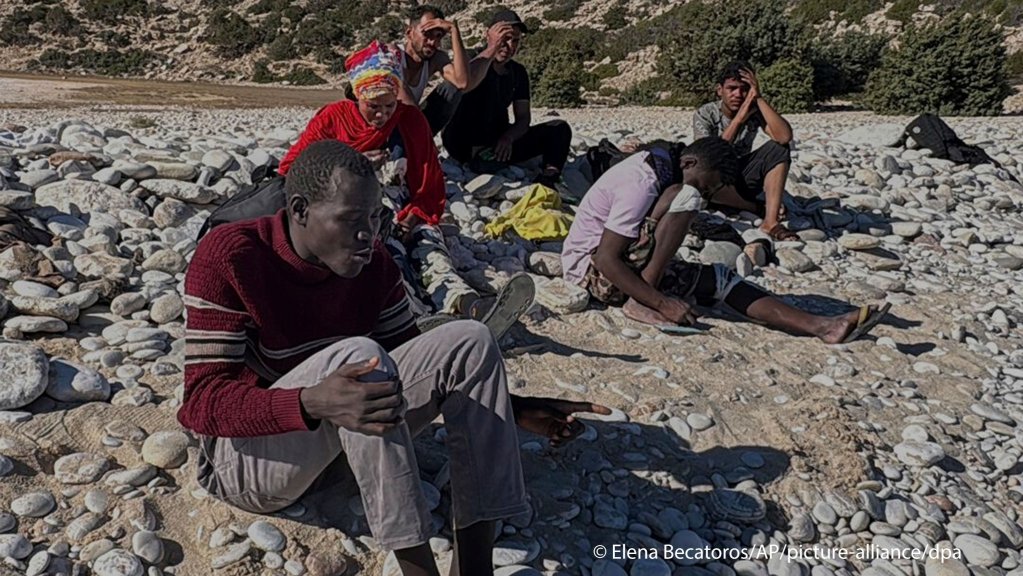
David, a migrant from South Sudan who landed on Gavdos, said he fled war and abuse only to face further trauma during the sea crossing. "If you stay, you die," he told the Associated Press. “We didn’t come to cause a problem. We came to save our lives.”
Greek government spokesperson Pavlos Marinakis said coast guard and navy surveillance of the region are likely to be intensified. He said that around 8,000 migrants have reached the island of Crete since the start of 2025.
'A catalog of horrors'
As EU leaders push Libya to take a tough stance on migrant departures, human rights organizations warn that further backing without oversight risks perpetuating a cycle.
Brunner's visit also follows a push by European Commission President Ursula von der Leyen to reduce migrant departures from eastern Libya, particularly those heading toward Greece.
In eastern Libya, armed groups affiliated with the Libyan Arab Armed Forces (LAAF), such as the Tariq Ben Zeyad brigade, have been accused of committing a "catalog of horrors," including the mass expulsion of refugees and migrants to neighboring countries like Chad, Egypt, Niger, and Sudan, often without due process or the opportunity to seek asylum, according to Amnesty.
Amnesty is now urging the EU to suspend its cooperation with Libyan authorities and "urgently re-evaluate their support for Libyan authorities and militias, suspend any actions contributing to trapping refugees and migrants in the country, and avoid further complicity in perpetuating grave human rights violations."
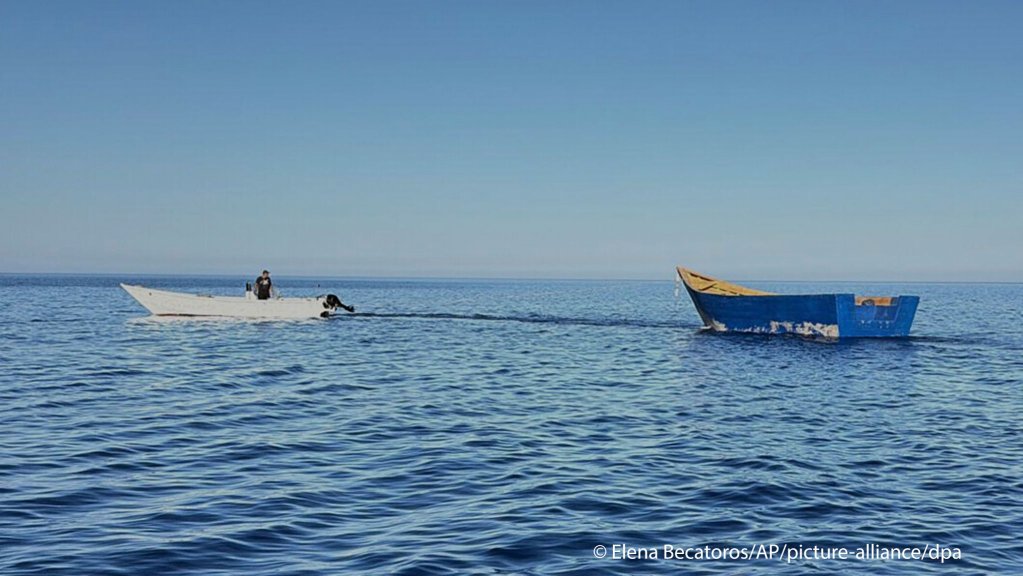
EU support for Libya
The European Commission states on one of its pages about Libya that it has been "working to protect migrants and refugees and support local communities in Libya, while taking action to reduce irregular departures through border management and anti-smuggling and trafficking in human beings."
Between 2015 and 2021, the EU Trust Fund for Africa, which is the EU's main tool to support Libya in the area of migration, committed a total of 465 million euros. Implementation of those projects paid for with that money are expected to continue until at least the end of this year.
Between 2021 and 2027, the EU also committed a further 65 million euros to Libya via the Neighborhood Development and International Cooperation Instruments (NDICI) "with a focus on protection and border management."
Another 25 million euros was allocated to Libya to help with returns and reintegration, and a document from 2024 that there would be more money to help Libya fight trafficking and smuggling, but the actual sum was going to be "confirmed at a later stage."
Update: We updated this article on July 9, 2025, to include information about the EU delegation being denied entry into eastern Libya.
